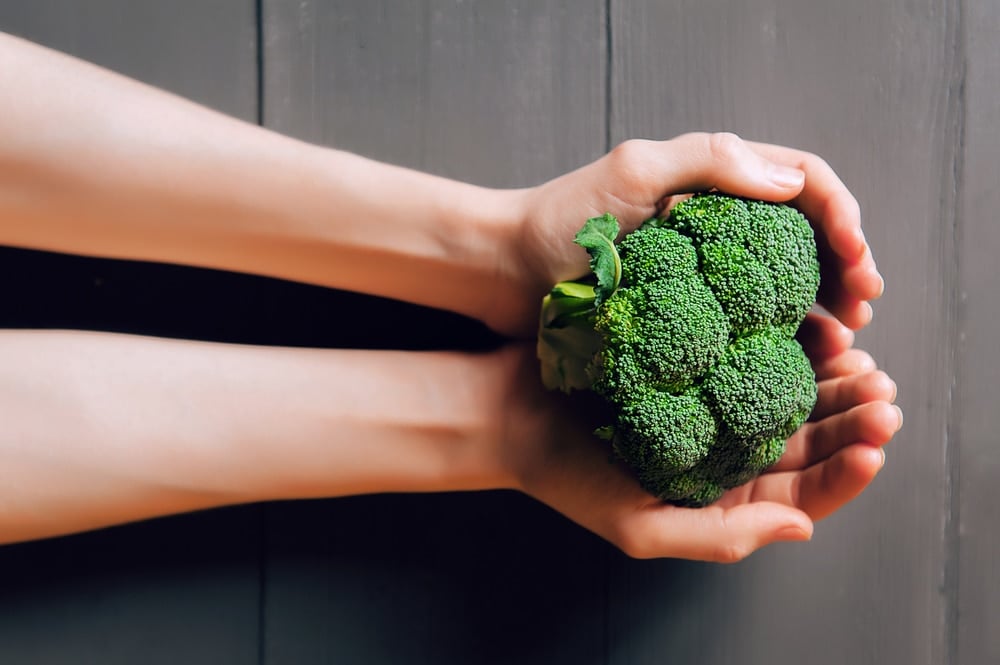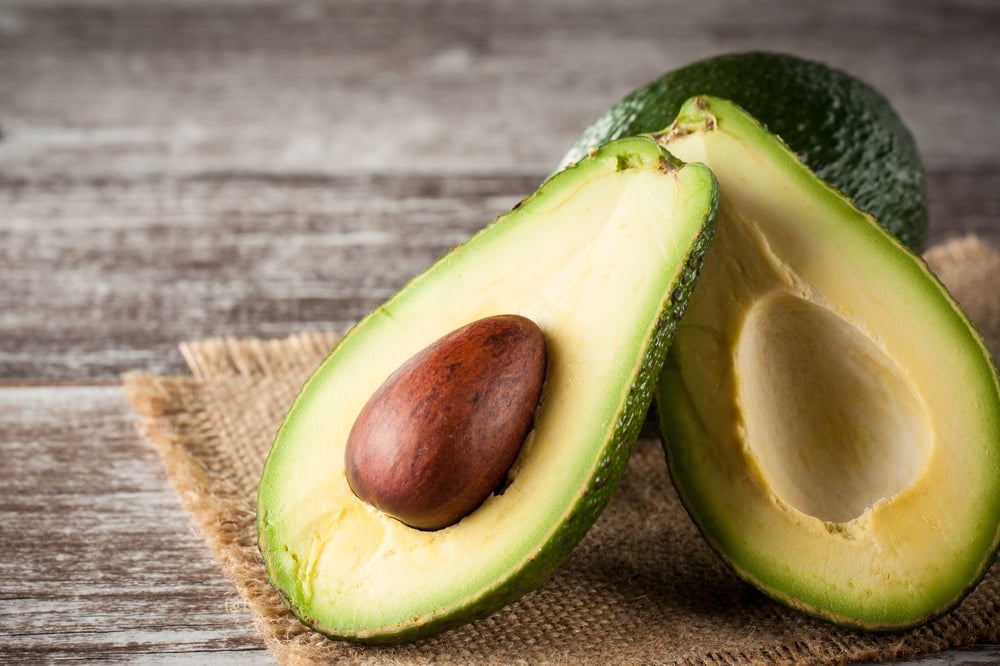
Menopause comes with plenty of unpleasant symptoms, from hot flashes and brain fog to insomnia and mood swings. But there are so many things you can do to help your body through this change, even years in advance. One of the best ways to take charge of your hormonal health is by adhering to this menopause diet. The foods we have listed are proven to help manage your menopause symptoms.
Typically, menopause occurs in your early 50s, menopause occurs when you’ve gone a full year without a period. (The exact time frame varies greatly, with an average range of 45-55).
Once you do hit menopause, you’ll be experiencing all-time low levels of all hormones can put you at risk for health conditions like osteoporosis and heart disease. That might sound scary, but “by making some changes to your eating habits, you might be able to ease a lot of the discomfort and keep your body healthier as you age,” says Sherry Ross, MD, an ob-gyn at St. John’s Health Center in Santa Monica, California.
Let’s explore the specific hormonal changes that occur during this time and the best foods for your menopausal diet.
Fiber-Rich Foods  Photo Credit: Shutterstock
Photo Credit: Shutterstock
Eating a high-fiber diet can help you with menopause-related digestion issues such as bloating or irregularity.
Getting enough fiber with every meal also helps you feel fuller longer, which can prevent unwanted menopausal weight gain.
It’s extremely common for women to gain weight in their menopausal years. Still, by incorporating more fiber into your diet (combined with cardio and plenty of strength training to keep muscle on your body and your metabolism working!), you can help manage your weight.
Foods high in fiber include:
- Bananas
- Apples
- Pears
- Broccoli
- Beans
- Chickpeas
- Brussels Sprouts
- Nuts
- Steel-cut oats
Recipes to Try
Overnight Pumpkin Spice Oatmeal
Shredded Brussels Sprouts & Kale Salad with Apples, Gorgonzola & Candied Pecans
Southwestern Sweet Pepper Nachos
Healthy Fats  Photo Credit: Shutterstock
Photo Credit: Shutterstock
Omega-3 fats are an essential part of any diet, but particularly during menopause, they can help stabilize mood swings and improve anxiety and depression. One of the best sources of omega-3s is oily fish, so you’ll notice they dominate the list below.
The following are omega-3-rich foods to eat more of:
- Salmon
- Tuna
- Herring
- Avocados
- Sardines
- Flaxseeds
- Grass-fed beef
- Kale
- Flax seeds
Recipes to Try
Teriyaki Salmon Salad (Easy 15-Minute Recipe!)
Baked Avocado Eggs
Avocado Tuna Salad
Calcium-Rich Foods  Photo Credit: Shutterstock
Photo Credit: Shutterstock
One thing nearly every doctor can agree on is the importance of calcium as you age. Getting enough calcium during menopause helps you maintain strong bones and avoid osteoporosis. To stay healthy and prevent injury, you need to make sure you’re getting enough calcium in your diet each day.
Below is a list of calcium-rich foods
- Greek yogurt
- Kefir
- Broccoli
- Leafy greens
- Oranges
- Beans
- Spinach
- Tofu
- Bok Choy
- Almonds
Recipes to Try
Healthy Chicken Stir-Fry
Vitamin D  Photo Credit: Shutterstock
Photo Credit: Shutterstock
Be sure you also get enough Vitamin D while eating calcium-rich foods because Vitamin D helps your body absorb calcium!
Getting enough vitamin D helps protect your bones and can also help with mood swings during menopause. Check out the list of foods rich in Vitamin D below or consider taking a Vitamin D supplement, especially in the winter or if you live in a cold, non-sunny climate.
Most doctors recommend 1,000 to 2,000 units of vitamin D a day if you’re taking it in supplement form.
Foods rich in Vitamin D include:
- Eggs
- Yogurt
- Salmon
- Mushrooms
- Fortified Milk
Recipes to Try
Healthy Lentil And Mushroom Veggie Burgers
Avocado Deviled Eggs
Dill Salmon Scramble
Balance These 4 Hormones for Weight Loss  Photo Credit: Get Healthy U
Photo Credit: Get Healthy U
Your hormones impact so many things—from your mood and energy levels to your weight.
When you are deficient or dominant in any one hormone, it’s easier to gain weight. This is particularly true for women who are experiencing hormonal imbalances caused by the natural aging process.
If you’re someone struggling with weight loss, you might benefit from understanding your hormone levels and trying these natural ways to balance your hormones.
Balance These 4 Hormones for Weight Loss
The 10 Yoga Poses You Should Do Everyday  Photo Credit: Shutterstock
Photo Credit: Shutterstock
Simply put, a daily yoga routine makes you feel good. No matter where you find yourself or how much time you have, you can do the 10 yoga poses below and start your day with a centered mind and a refreshed body. Because beyond the mental benefits of yoga, the way your body will feel after a good stretch is vital to a healthy lifestyle.
The 10 Yoga Poses You Should Do Everyday
Strength Training for Women Over 50: 11 Best Moves  Photo Credit: Get Healthy U
Photo Credit: Get Healthy U
While aging is inevitable, aging well is not. There are many factors involved in maintaining good physical and mental health as you age, but one of the most important things to consider as you grow older is weight training. The below strength training exercises are proven to get results for women over 50.
Strength Training for Women Over 50: 11 Best Moves
The Ultimate Guide to a Menopause Diet: Discover the Power of Foods in Managing Symptoms
Understanding Menopause
Menopause is a natural biological process that all women experience as they age. It marks the end of a woman’s reproductive years and is typically diagnosed after a woman has gone 12 consecutive months without a menstrual period. Menopause brings about various physical and emotional changes due to hormonal fluctuations, and many women experience symptoms such as hot flashes, night sweats, mood swings, weight gain, and sleep disturbances.
The Role of Diet in Managing Menopause Symptoms
While menopause is inevitable, the good news is that certain foods can help manage its symptoms and promote overall well-being during this transitional phase. A well-balanced diet rich in specific nutrients can alleviate discomfort and support optimal health.
Key Nutrients for a Menopause Diet
1. Calcium: As women age, their bone density decreases, increasing the risk of osteoporosis. Consuming calcium-rich foods like dairy products, leafy greens, and fortified plant-based milk can help maintain strong bones.
2. Vitamin D: Vitamin D aids in calcium absorption and plays a crucial role in bone health. Natural sources of vitamin D include fatty fish, egg yolks, and fortified foods like cereals and orange juice.
3. Omega-3 Fatty Acids: These essential fats have anti-inflammatory properties and can help reduce the risk of heart disease, which becomes more prevalent after menopause. Fatty fish like salmon and sardines, flaxseeds, chia seeds, and walnuts are excellent sources of omega-3 fatty acids.
4. Fiber: Menopause often brings digestive issues like bloating and constipation. Fiber-rich foods such as whole grains, fruits, vegetables, and legumes can promote regular bowel movements and support gut health.
5. Phytoestrogens: These plant compounds mimic estrogen in the body and may help alleviate menopausal symptoms. Foods rich in phytoestrogens include soy products, flaxseeds, sesame seeds, and whole grains.
Foods to Include in Your Menopause Diet
1. Whole Grains: Opt for whole grain options like brown rice, quinoa, and whole wheat bread, which provide essential nutrients and fiber.
2. Fruits and Vegetables: Aim to consume a variety of colorful fruits and vegetables daily to obtain a wide range of vitamins, minerals, and antioxidants.
3. Lean Protein: Incorporate lean protein sources such as poultry, fish, tofu, and legumes into your meals to support muscle mass and keep you feeling full.
4. Healthy Fats: Include sources of healthy fats like avocados, olive oil, nuts, and seeds in your diet to support hormone production and heart health.
5. Fermented Foods: Probiotic-rich foods like yogurt, kefir, sauerkraut, and kimchi can promote gut health and aid digestion.
Foods to Limit or Avoid
1. Added Sugars: Limit your intake of sugary foods and beverages as they can contribute to weight gain and increase the risk of chronic diseases.
2. Caffeine: While some women may tolerate caffeine well, others may find that it exacerbates menopausal symptoms such as hot flashes and sleep disturbances. Monitor your caffeine intake and adjust accordingly.
3. Spicy Foods: Spicy foods can trigger hot flashes in some women. If you notice an increase in symptoms after consuming spicy meals, it may be best to limit your intake.
Lifestyle Considerations
Along with a healthy diet, certain lifestyle choices can further support your well-being during menopause:
1. Regular Exercise: Engaging in regular physical activity can help manage weight, reduce the risk of chronic diseases, and improve mood and sleep quality.
2. Stress Management: Menopause can be a stressful time for many women. Explore stress-reducing techniques like yoga, meditation, deep breathing exercises, or engaging in hobbies you enjoy.
3. Stay Hydrated: Drink plenty of water throughout the day to stay hydrated and support overall health.
4. Get Enough Sleep: Establish a regular sleep routine and create a comfortable sleep environment to promote quality sleep. Avoid electronic devices before bedtime to improve sleep quality.
Consult with a Healthcare Professional
While a menopause diet can be beneficial for managing symptoms, it’s important to consult with a healthcare professional or registered dietitian before making any significant dietary changes. They can provide personalized advice based on your specific needs and medical history.
In conclusion, a well-balanced menopause diet rich in calcium, vitamin D, omega-3 fatty acids, fiber, and phytoestrogens can help manage symptoms and promote overall health during this transitional phase. By incorporating nutrient-dense foods and making lifestyle adjustments, women can navigate menopause with greater ease and embrace this new chapter of life.








